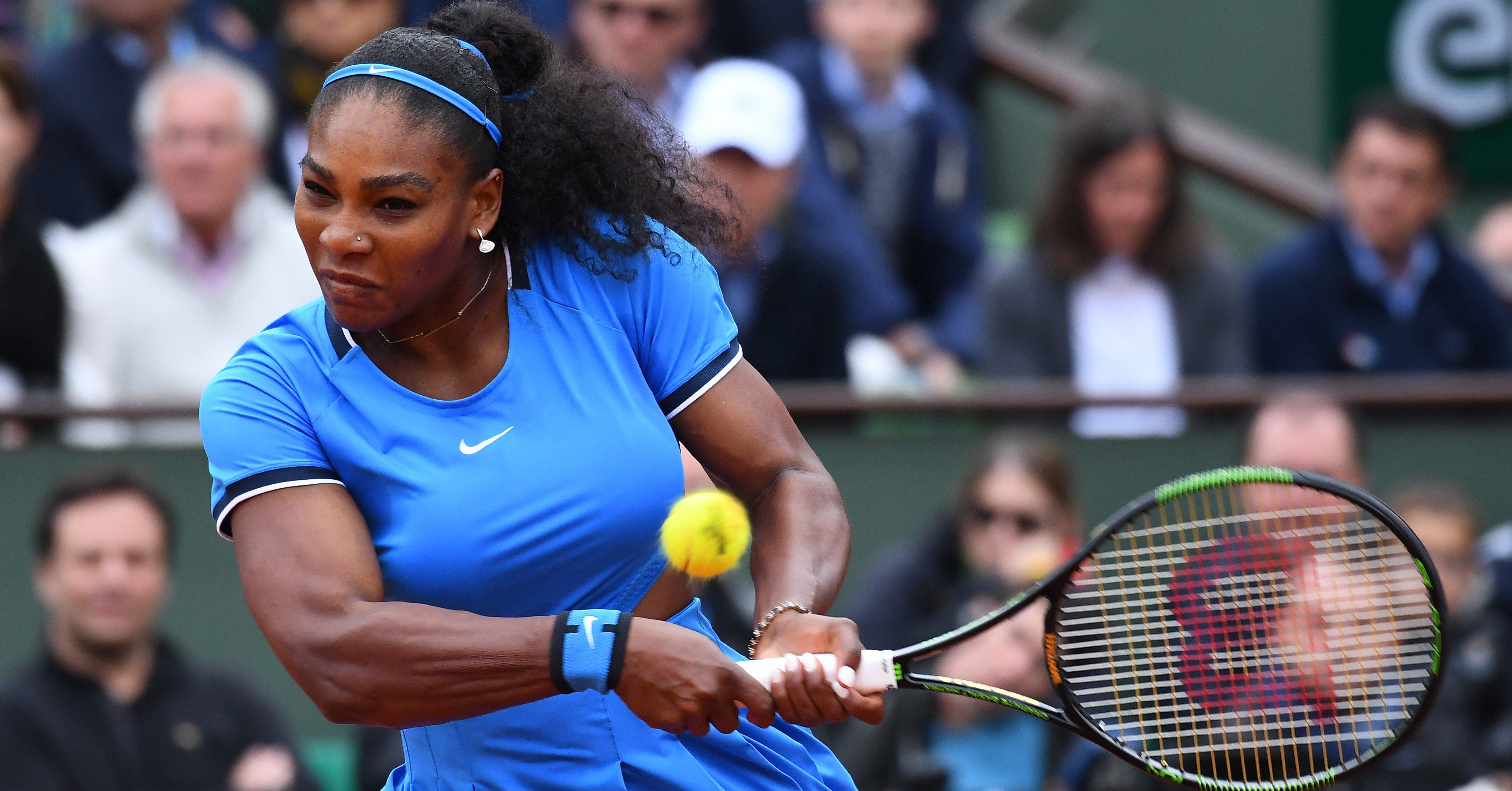Serena Williams Not Seeded At French Open After Giving Birth

When three-time French Open winner Serena Williams returns to Grand Slam tennis next week, the top competitor will face a mother of a battle.
After 14 months off the court to recover not just from childbirth, but from near fatal complications that kept her bedridden for six weeks, Williams will compete in the French Open, dropped from her previous rank of No. 1 down to No. 453. The decision could compel Williams to face her most serious rivals at the start of the competition, an unexpected elimination risk for the 23-time Grand Slam winner who was ranked No. 1 in the world after she won the Australian Open while pregnant in 2017. (Yes, while pregnant.)
“This year again, tournament officials will establish the list and ranking of the women’s seeds based on the WTA ranking,” the French Tennis Federation said in a statement to The Associated Press. “Consequently, [the seeds] will reflect this week’s world ranking.”
And in this week’s world ranking, Williams is No. 453.
This isn’t bad luck for Williams or a simple blameless blunder in the rules. Make no mistake: officials at the French Open have opted to overlook Williams’ circumstances, despite the protestations of even Williams’ rivals.
At the Italian Open last week, Maria Sharapova, who’s lost three Grand Slam finals to Williams, said that she’d “like to see that [rule] change.”
“It’s such an incredible effort for a woman to come back from physically, emotionally,” Sharapova said, adding that motherhood adds “another whole dimension to the travel, to the experiences, to the emotions, to the physicality of every single day.” If a woman wants to take that on, Sharapova seemed to suggest, she shouldn’t be set back for it.
Elina Svitolina, who won the Italian Open, also wanted to see Williams seeded this week. Simona Halep put it in the plainest possible terms: “It’s normal to give birth. It’s normal to have protected ranking.” This, she continued, “is more than tennis.”
In the meantime, some technical rules have been bent to accommodate her. Williams is able to compete in Paris at Roland Garros because the Women’s Tennis Association at least does have a “special ranking rule,” which allows competitors to use a previous ranking to enter up to eight tournaments within 12 months of their return from childbirth or other serious injuries. But the fact that the WTA doesn’t distinguish between genuine impairments and the birth of an infant speaks to just how much ground the tour needs to cover to meet the modern needs of its participants.
While it’s true that women have tended to retire from the sport before children, more and more of them have decided not to put off motherhood to finish competition. As USA Today notes, Kim Clijsters won three of her four majors after the birth of her first child. And Sania Mirza, who’s won three Grand Slam titles in doubles, has said she will return to the court after she delivers in October.
Since she delivered her daughter in September, Williams has “had to rebuild her body,” her coach Patrick Mouratoglou told the WTA tour website. And while she’s entered two events since then (at Indian Wells and the Miami Open), Mouratoglou explained that the French Open is the real return. “Serena will play the French Open to win it”—no matter how arduous the climb back to the top.
The draw for the French Open is set for later this week, and competition will start over the weekend. In at least one respect, Williams continues to be treated like the record breaker she is. She tweeted on Monday that she’d been tested for the second time this week, despite a standing that wouldn’t seem to demand such concerted attention.
https://twitter.com/serenawilliams/status/998640535609987073
That same afternoon, the WTA said it would reconsider its position on protected seeds for its 2019 season and added that it remains “committed to evolving with the needs of our players and are very supportive of those players returning from maternity leave to the tour.”
When Williams entered the Miami Open, James Blake, its director and a former competitor himself, said that he saw the matter as more straightforward, not a matter for as much deliberation as the WTA seems to feel it needs. “She had a kid, which we should all be celebrating, so when she comes back there should be a grace period where she can still be seeded,” he said.
Instead, he went on, “It’s a kind of punishment, which is tough.”





